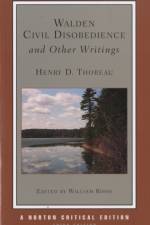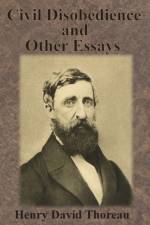von Henry David Thoreau
22,90 €
Walden is one of the more famous transcendentalist tracts in modern American literature. First published in 1854, Walden is an account of Thoreaüs famous experiment in solitude: spending over two years alone in a cabin near the wilderness.Walden is broken into sections that meditate on single themes: economy, reading, sounds, solitude, visitors, and so on. The style is complex, weaving back and forth between simple, home-spun prose and complex allegory, metaphor, and allusion. This makes Walden an interesting read because while it may seem accessible on the surface, it¿s a book that requires deep and repeated reading to fully appreciate its many complexities.Walden is a book by American transcendentalist writer Henry David Thoreau. The text is a reflection upon the author's simple living in natural surroundings. The work is part personal declaration of independence, social experiment, voyage of spiritual discovery, satire, and¿to some degree¿a manual for self-reliance.Walden details Thoreau's experiences over the course of two years, two months, and two days in a cabin he built near Walden Pond amidst woodland owned by his friend and mentor Ralph Waldo Emerson, near Concord, Massachusetts.Thoreau makes precise scientific observations of nature as well as metaphorical and poetic uses of natural phenomena. He identifies many plants and animals by both their popular and scientific names, records in detail the color and clarity of different bodies of water, precisely dates and describes the freezing and thawing of the pond, and recounts his experiments to measure the depth and shape of the bottom of the supposedly "bottomless" Walden Pond.There has been much speculation as to why Thoreau went to live at the pond in the first place. E. B. White stated on this note, "Henry went forth to battle when he took to the woods, and Walden is the report of a man torn by two powerful and opposing drives¿the desire to enjoy the world and the urge to set the world straight", while Leo Marx noted that Thoreau's stay at Walden Pond was an experiment based on his teacher Emerson's "method and of nature" and that it was a "report of an experiment in transcendental pastoralism".Likewise, others have assumed Thoreau's intention during his time at Walden Pond was "to conduct an experiment: Could he survive, possibly even thrive, by stripping away all superfluous luxuries, living a plain, simple life in radically reduced conditions?" He thought of it as an experiment in "home economics". Although Thoreau went to Walden to escape what he considered "over-civilization", and in search of the "raw" and "savage delight" of the wilderness, he also spent considerable amounts of his time reading and writing.Thoreau used his time at Walden Pond (July 4, 1845 ¿ September 6, 1847) to write his first book, A Week on the Concord and Merrimack Rivers (1849). The experience later inspired Walden, in which Thoreau compresses the time into a single calendar year and uses passages of four seasons to symbolize human development.By immersing himself in nature, Thoreau hoped to gain a more objective understanding of society through personal introspection. Simple living and self-sufficiency were Thoreau's other goals, and the whole project was inspired by transcendentalist philosophy, a central theme of the American Romantic Period.









![Canoeing in the Wilderness [Standard Large Print 16 Pt Edition] af Henry David Thoreau](https://cdnbackdoor.tales.as/thumbnail/150x225/products/00258/80661/canoeing-in-the-wilderness-standard-large-print-16-pt-edition.jpg)



















